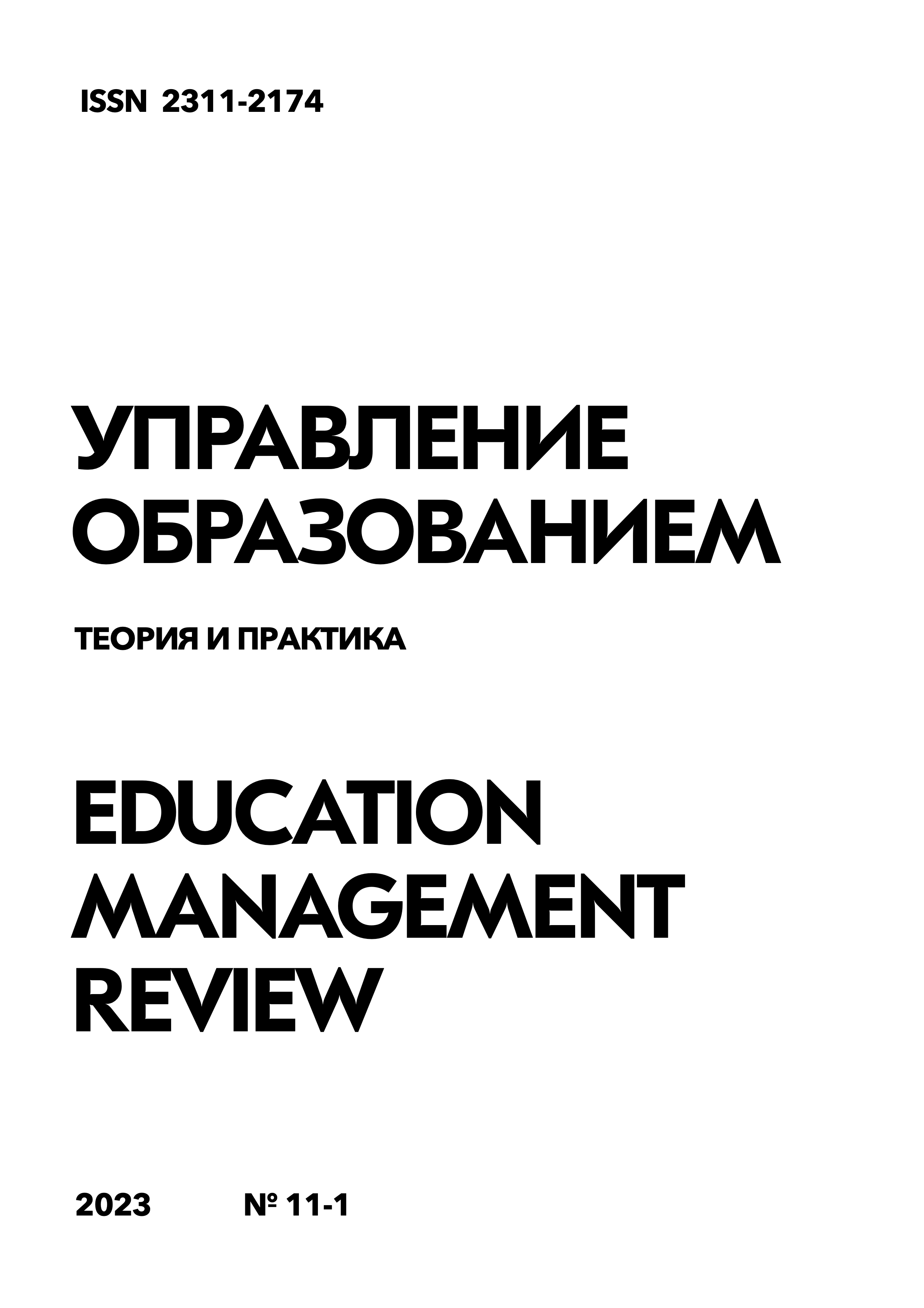Strategies for adapting curricula for inclusive education in Russian universities
DOI:
https://doi.org/10.25726/l7436-2365-6924-oKeywords:
inclusive education, curriculum adaptation, higher education, Russia, digitalization of education, individualization of learning, students with special needsAbstract
Introduction: In recent years, in the context of globalization and the intensification of social responsibility, the Russian educational system has been undergoing significant transformations aimed at integrating inclusive education in universities. According to a study conducted by the Ministry of Education and Science of the Russian Federation in 2021, only 12% of Russian universities are fully adapted to the needs of students with special needs, which underlines the relevance and need to develop strategies for adapting curricula. Materials and methods: The study is based on the analysis of data obtained from 30 leading universities in Russia, covering more than 200 academic programs in various fields. Methods of qualitative and quantitative analysis were used, including statistical data processing and expert interviews with teachers who develop and implement inclusive programs. Results: The existing practice of adapting curricula in Russian universities is analyzed, key areas and adaptation strategies are identified. One of the successful models is the integration of specialized modules aimed at the development of universal competencies into standard curricula. Thus, the course "Fundamentals of Inclusive Education" was implemented at Lomonosov Moscow State University with the participation of 150 students in 2022, which increased the level of students' awareness of the specifics of inclusive education by 40%. An important aspect is also the development of individual educational routes for students with special needs. For example, a system of individual curatorships was developed at St. Petersburg State University, which led to a 30% reduction in deductions among students with disabilities in the 2021-2022 academic year. A key element of adaptation is also the introduction of digital technologies and the development of electronic resources available to students with various types of restrictions. The study revealed that 25% of universities use specialized programs and applications to facilitate the education of students with visual and hearing impairments.
References
Алехина С.В. Инклюзивное образование: от политики к практике // Психологическая наука и образование. 2016. Т. 21. № 1. C. 136-145.
Афонькина Ю.А. Принципы инклюзивного образования в парадигме социального взаимодействия // Гуманитарный научный вестник. 2017. № 11. С. 16-20.
Богорад П.Л., Загуменная О.В., Хаустов А.В. Адаптация учебных материалов для обучающихся с расстройствами аутистического спектра. Методическое пособие. Под общ. ред. А.В. Хаустова. М.: ФРЦ ФГБОУ ВО МГППУ, 2017. 80 с.
Вишнякова И.В. Технология организации развивающей среды вуза // Инженерное образование. 2018. № 24. С. 182-185.
Кирюшина А.Н., Железнова Е.Р., Мамедова Ю.И. Организация развивающего коррекционно-образовательного процесса с дошкольниками, имеющими особые образовательные потребности. Санкт-Петербург: Детство-Пресс, 2018. 190 с.
Кондратьев В.В., Файзуллин Р.Р., Вишнякова И.В. Теоретический анализ современного состояния образования по техническим специальностям в области подготовки лиц с ограниченными возможностями по слуху // Управление устойчивым развитием. 2019. № 3. С. 110-114.
Лернер И.М., Ильин Г.И., Зиятдинова Я.Ф., Изерский И.О., Лопатина А.В. Особенности в обучении инвалидов по слуху в высшей школе по техническим специальностям // Вестник Казанского государственного энергетического университета. 2017. № 4. С. 120126.
Лернер И.М., Кондратьев В.В. Адаптирование общеобразовательной дисциплины для формирования творческой самостоятельности слабослышащих студентов // Педагогика и психология образования. 2018. № 4. С. 132-141.
Лернер И.М., Кондратьев В.В. Информационные технологии в формировании кластеров восприятия информации у студентов с нарушениями слуха // Информатика и образование. 2019. №8. С. 57-63.
Лубовский В.И. Инклюзия - тупиковый путь для обучения детей с ограниченными возможностями // Специальное образование. 2016. № 4. С. 77—87.
Лубовский Д.В. Технологии психолого-педагогического сопровождения, обеспечивающие преемственность организации образовательного процесса в условиях реализации современных ФГОС общего образования. Под ред. С.В. Алехиной. М.: МГППУ, 2017. 160 с.
Максименко М.А. Особенности организации инклюзивного образования в США // Проблемы современного образования. 2020. № 3. С. 75-82.
Москаленко И.В. Непрерывность психолого-педагогического сопровождения обучающихся с ОВЗ как условие качества инклюзивного образования. V Международная научно-практическая конференция «Инклюзивное образование: непрерывность и преемственность». Гл. ред. С.В. Алехина. М.: МГППУ, 2019. 488 с.
Семаго М.М. Организация деятельности системы ПМПК в условиях развития инклюзивного образования. Под общ. ред. М.М. Семаго, Н.Я. Семаго. М.: АРКТИ, 2019. 368 с.
Ясин М.И. Раскрытие человеческого потенциала: инклюзивное образование для студентов с инвалидностью по слуху. 2022. № 4. С. 22-27. DOI: https://www.doi.org/10.17805/trudy.2022.4.4

